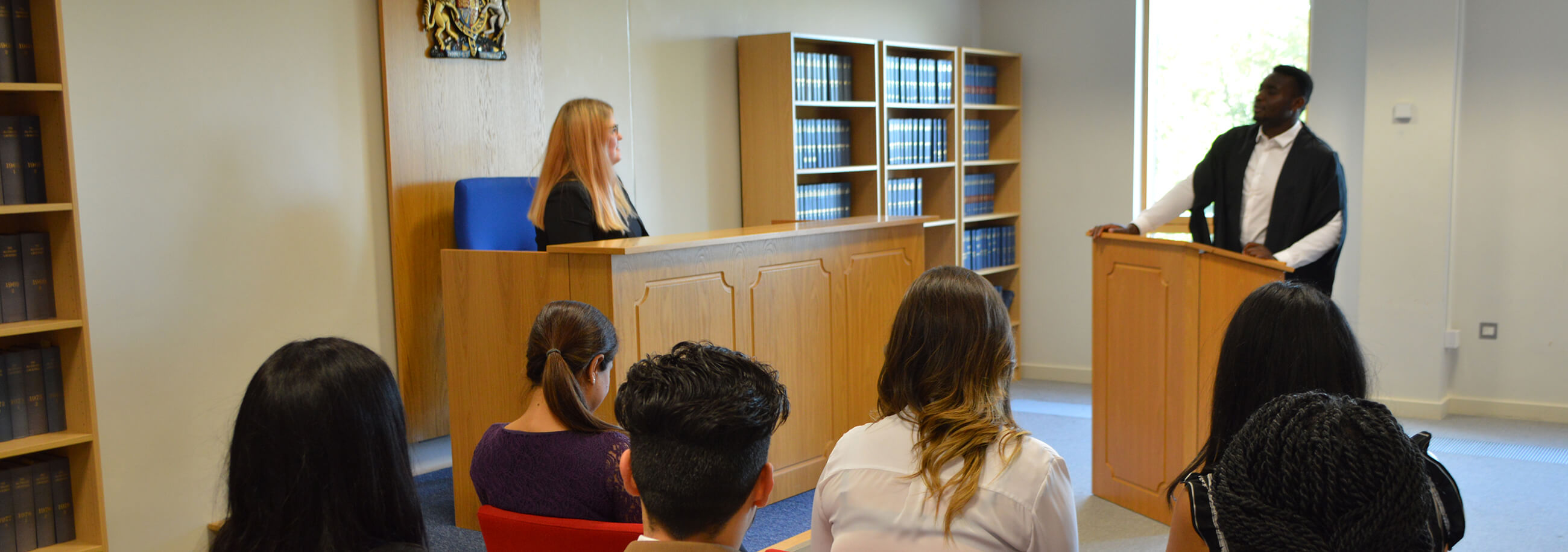Follow a day in the life of University of Roehampton human rights professor Jérémie Gilbert as he undertakes some of his activist work to support the enhancement of human rights. Studying on our LLM Human Rights and Legal Practice or our MA Human Rights and International Relations degree at Roehampton means you will be taught by practitioners, academics, and human rights activists.
field work as a human rights activist
Find out what it is like for Professor Jérémie Gilbert to present at the United Nations headquarters in New York.

Interview with Dr Daniel Aguirre
How did you start your career into human rights or what may have inspired it?
I was involved with a series of student protests in the late 90s against economic globalisation. We were concerned about the inequality and environmental destruction associated with unregulated global markets. I did not realise it would become a lifelong career.
Why is it important to study or work in human rights?
The world is at a precarious juncture, in which human rights are increasingly threatened. We need a new generation of activists to stand up to those who would violate human rights and destroy our planet for power or profit.
Can you tell me about one of your research projects that has had an impact?
In the field of human rights impact is hard to measure. Change is a slow process. Working for the International Commission of Jurists in Myanmar, my research had a direct impact on various laws and policy. Moreover, our training for lawyers and civil society encouraged campaigns of strategic litigation in land grabbing cases. But, obviously, the situation of human rights there remains dire.
What types of challenges have you faced or may occur in human rights law?
Human rights is an increasingly dangerous field. Human rights defenders are under threat of incarceration and violence around the world. It is a challenge to ensure that your work to promote human rights does not jeopardise the safety of partners and stakeholders.
What advice would you give to students interested in studying human rights law?
This is not a career you go into to make money; it is something you do because you are passionate about human rights and want to do something about their violation. It is an opportunity to change things rather than just accepting injustice.
Why study at Roehampton?
Join one of the very few specialised human rights masters which is embedded in practice providing you with the necessary professional experience for a career in the human rights field. The practice of human rights involves utilising many different skills, from traditional lawyering skills such as engaging and managing litigation, but also conducting a human rights campaign, doing lobbying, monitoring and reporting about human rights issues, and supporting victims.
What are my career options with a masters degree in human rights?
You could work in human rights organisations, including international organisations such as the United Nations, the International Labour Organisation, and the International Criminal Court or for a Non-Governmental Organisation (NGO) specialised in human rights and social justice. Many of these organisations are headquartered in London.
Enquire about our LLM Human Rights and Legal Practice course
Cases Professor Jerémie Gilbert has worked on:
Supporting Indigenous Peoples at the Inter-American Court of Human Rights
This concerns the case of the Kaliña and Lokono Peoples of Suriname in front of the Inter-American Court of Human Rights. The facts of this case involve a series of violations of the rights of the members of eight communities of the Kaliña and Lokono indigenous peoples of Suriname. Professor Gilbert was invited by the Inter-American Commission on Human Rights to appear as an expert witness to support the claims of the concerned communities.

Legal evaluation work in Africa
Professor Gilbert undertook a filed visit to indigenous communities in Tanzania and Kenya to support their rights to land and natural resources. This includes support to the Ogiek community of Kenya in the recent legal victory in front of the African Court on Human and Peoples’ Rights. He then supported legal evaluation work with Maasai communities located in Northern Tanzania.

Training on Strategic Litigation in Myanmar
Professor Gilbert went to Myanmar to support a weeklong series of workshop on strategic litigation organised by the International Commission of Jurists for the newly established Independent Lawyers Association of Myanmar (ILAM). The workshop was aimed at supporting training on key issues to engage in strategic litigation, or lawyering for social chance.




